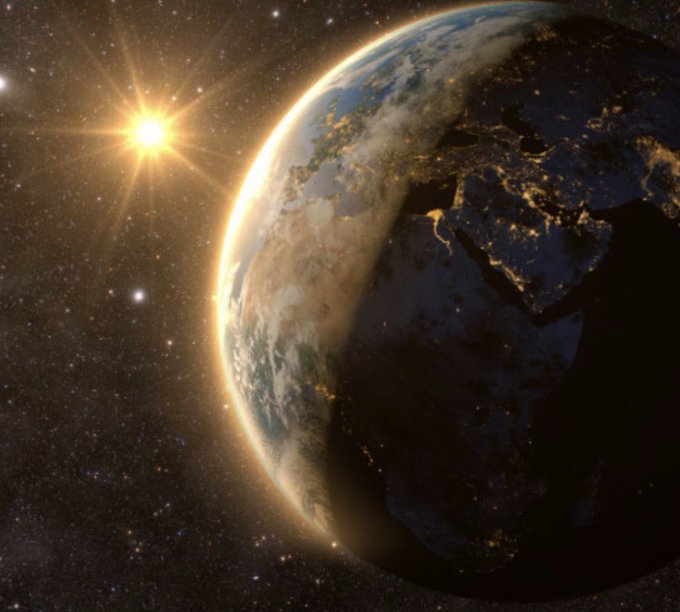
On June 29, 2022, the Earth made one full rotation that took 1.59 milliseconds less than the average day length of 86,400 seconds, or 24 hours. While a 1.59-millisecond shortening might not seem like much, it is part of a larger and peculiar trend.
Indeed, on July 26, 2022, another new record was nearly set when the Earth finished its day 1.50 milliseconds shorter than usual, as reported by The Guardian and the time-tracking website Time and Date. Time and Date notes that the year 2020 had the highest number of short days since scientists started using atomic clocks to take daily measurements in the 1960s. Scientists first started to notice the trend in 2016.
While the length of an average day may vary slightly in the short-term, in the long-term the length of the day has been increasing since the Earth-moon system was formed.
That’s because over time, the force of gravity has moved energy from the Earth — via the tides — to the Moon, pushing it slightly further away from us. Meanwhile, because the two bodies are in tidal lock — meaning the Moon’s rate of rotation and revolution are equivalent such that we only ever see one of its sides — physics dictates that the Earth’s day must lengthen if the two bodies are to remain in tidal lock as the moon moves further away. Billions of years ago, the Moon was much closer and the length of Earth’s day much shorter.
While scientists know that the Earth’s days are shortening on a short-term scale, a definitive reason as to why remains unclear— along with the effect it might have on how we as humans track time.
“The rotation rate of Earth is a complicated business. It has to do with exchange of angular momentum between Earth and the atmosphere and the effects of the ocean and the effect of the moon,” Judah Levine, a physicist in the time and frequency division of the National Institute of Standards and Technology, told Discover Magazine. “You’re not able to predict what’s going to happen very far in the future.”
JUST IN: The Earth is spinning faster than USUAL 😳‼️ pic.twitter.com/CRqfTdkquK
— RapTV (@Rap) August 3, 2022
But Fred Watson, Australia’s astronomer-at-large, told ABC News in Australia that if nothing is done to stop it, “you are going to gradually get the seasons out of step with the calendar.”
“When you start looking at the real nitty gritty, you realize that Earth is not just a solid ball that is spinning,” Watson said. “It’s got liquid on the inside, it’s got liquid on the outside, and it’s got an atmosphere and all of these things slosh around a bit.”
Matt King from University of Tasmania described the trend to ABC News Australia as “certainly odd.”
“Clearly something has changed, and changed in a way we haven’t seen since the beginning of precise radio astronomy in the 1970s,” King said.
Could it be related to extreme weather patterns? As reported by The Guardian, NASA has reported that Earth’s spin can slow stronger winds in El Niño years and can slow down the planet’s spin. Likewise, the melting of ice caps moves matter around on Earth and thus can change the rate of spin.
While this minor time-suck has little affect on our everyday life, some scientists have called for the introduction of a negative “leap second,” which would subtract one second from a day to keep the world on track for the atomic time system, if the trend continues. Since 1972, leap seconds have been added every fews years. The last one was added in 2016.
“It’s quite possible that a negative leap second will be needed if the Earth’s rotation rate increases further, but it’s too early to say if this is likely to happen,” physicist Peter Whibberley of the National Physics Laboratory in the U.K., told The Telegraph. “There are also international discussions taking place about the future of leap seconds, and it’s also possible that the need for a negative leap second might push the decision towards ending leap seconds for good.”

